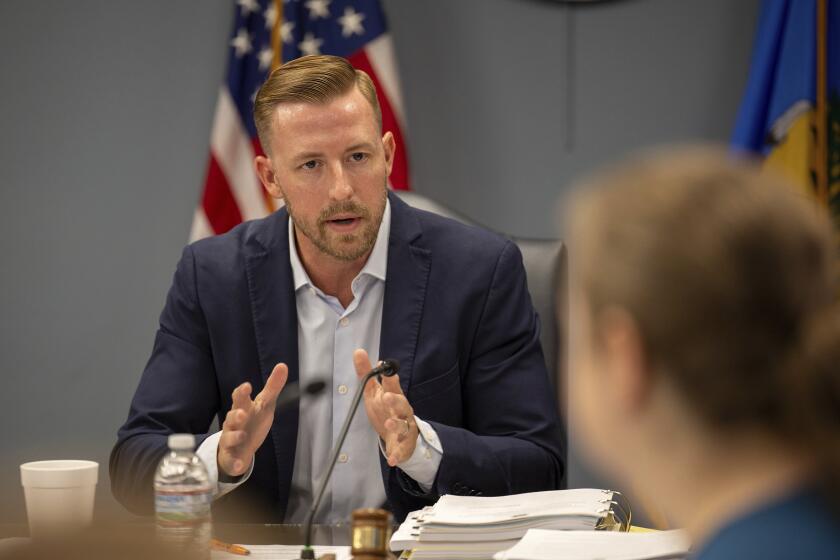The Disaster of Not Responding : New famine raises issue of compassion fatigue
The pictures are eerily familiar. African children are starving, again. Hungry mothers hold malnourished babies, again. Famine nurtured by civil wars has made the situation desperate in Ethiopia, Sudan, Somalia, Mozambique, Angola, Malawi and Liberia. The richer nations of the world are asked to come to the rescue--again.
Hunger is not new in Africa. But Cable News Network says it has spent $300,000 to tell the world about 30 million people who are at risk in the most recent wave of massive starvation. Even so, CNN’s absorbing weeklong series, “Famine in Africa,” put a picture on a tragedy that must compete with the misery in Bangladesh, the Philippines and northern Iraq. The magnitude is overwhelming. The repetition of misery, unfortunately, also contributes to compassion fatigue.
FAMINE PAST: Ethiopia faced mass starvation seven years ago. At least 1 million children and elderly adults died during the 1984-85 famine. News photos of skeleton-like children with bellies bloated from malnutrition prompted an international outpouring of charity, including proceeds from the hit recording “We Are the World” and the Live Aid concert. Governments gave unprecedented amounts of food. But because of civil wars between dictators and rebels it wasn’t enough.
Hunger is a typical consequence of war. Soldiers deny provisions to their enemies and to the enemies’ children because the youngsters--if they live--could grow up to be soldiers. The fighting interrupts food distribution by farmers who flee their lands or who cannot get their produce to market. The fighting also inhibits relief teams who must get food out of blockaded ports or over roads filled with mines.
War, however, is not the only cause of the suffering. Long droughts, deforestation, desertification, overpopulation, rural migration to the cities and bad roads also contribute to huge shortages of food in Africa. But relief workers can best plan for these problems and respond to emergencies when they are not impeded by bullets or local politics.
Despite the challenges, the United States and other donor nations have committed to deliver nearly 1 million tons of food to Africa this year. That huge task has been made easier by the recent resignation of the corrupt and brutal former president, Mengistu Haile Mariam, in Ethiopia and the ending of long civil wars in Somalia and Angola.
U.N. FUTURE: Now there are calls for a U.N. relief chief with the authority to coordinate all humanitarian aid and direct all disaster operations. Even existing international humanitarian organizations are encouraging the United Nations to take the lead in order to reduce the presence of politics in the relief process. The United States, England, Germany and other major donor governments should agree to the proposed restructuring.
African children, Bangladeshi children, Filipino children and Kurdish children need something to eat today. The world must push ahead, and help again.
It’s only too late when we give up caring.
More to Read
Sign up for Essential California
The most important California stories and recommendations in your inbox every morning.
You may occasionally receive promotional content from the Los Angeles Times.










